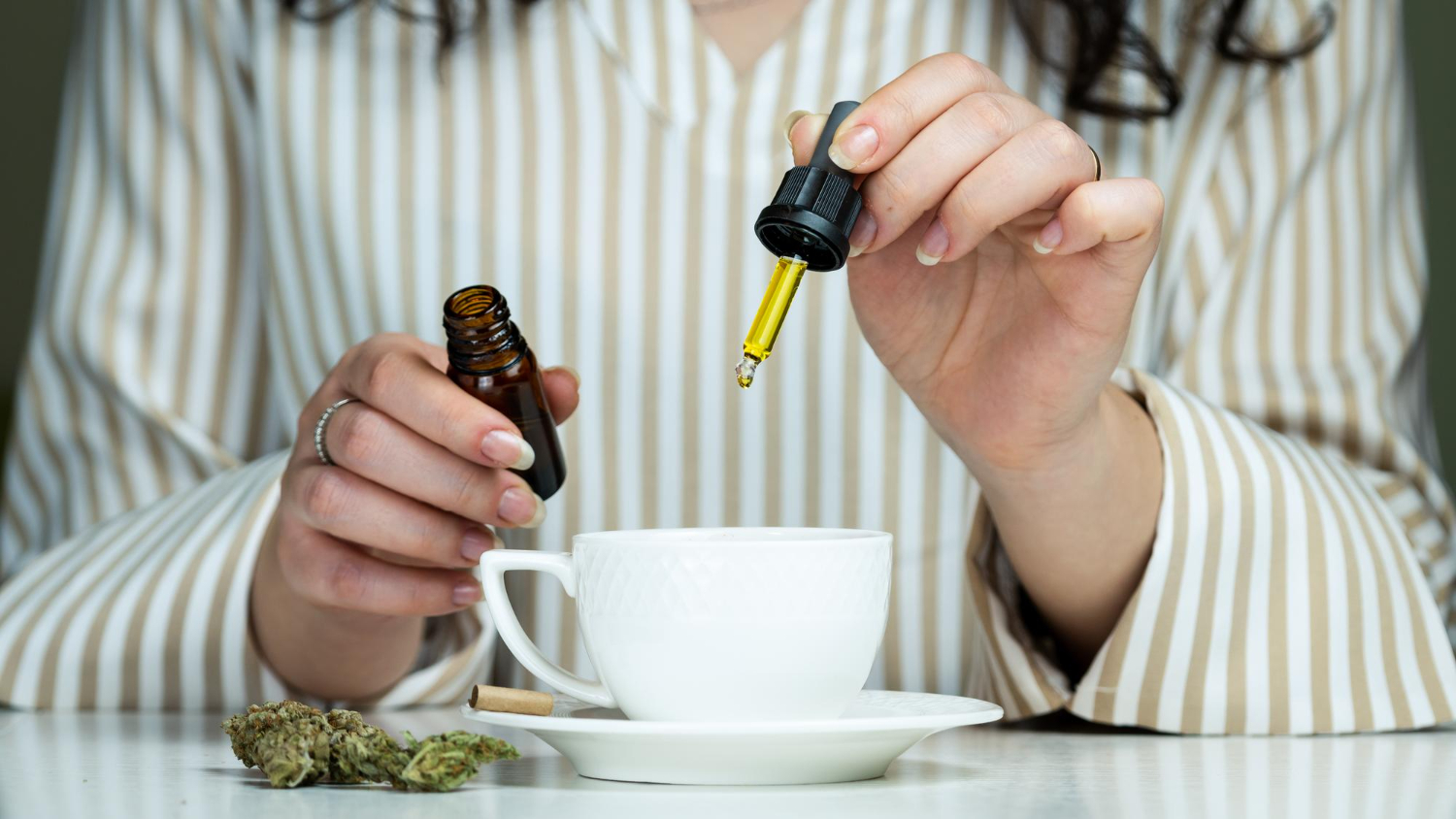Finding the right CBD oil can seem overwhelming due to the many options available. The best approach is to focus on quality and source when looking to buy CBD oil. Understanding how CBD works and its potential benefits will help in making informed choices. The market features various products, including full-spectrum and broad-spectrum oils, each with unique characteristics.
Many consumers are now turning to CBD oil for its potential wellness benefits. With a growing interest in natural remedies, people are seeking out reliable products that meet their needs. Knowledge of dosages, safety, and extraction methods is essential to ensure that users have a safe experience.
Whether looking for pain relief, anxiety reduction, or general wellness support, knowing what to look for in CBD oil will make the shopping experience easier and more effective.
Key Takeaways
- Quality and source are crucial when choosing CBD oil.
- Understanding different types of CBD products can aid in better selection.
- Awareness of dosages and safety can enhance the overall CBD experience.
Understanding CBD Oil
CBD oil is gaining popularity for its potential health benefits. It is important to understand what it is, its legal status, and how it compares to other cannabinoids. This knowledge can help consumers make informed decisions.
What Is CBD Oil?
CBD oil is a product made from the cannabis plant. It contains cannabidiol (CBD), one of the many compounds in cannabis. Unlike THC, which is responsible for the “high,” CBD does not cause intoxication.
CBD oil can be derived from two main sources: hemp and marijuana. Hemp-derived CBD oil is more common and is usually legal in many areas. The extraction methods can vary, leading to different concentrations of CBD and other plant compounds.
The Legal Status of CBD Oil
The legal status of CBD oil depends on its source and THC content. In the United States, hemp-derived CBD products are federally legal as long as they contain less than 0.3% THC. This low THC level is not enough to cause a high.
States may have their own laws regulating CBD. Some states allow both hemp and marijuana-derived CBD, while others restrict it. It is essential for consumers to check their local laws before purchasing.
Potential Health Benefits
Many people use CBD oil for various health issues. Research indicates it may help with:
- Pain relief: Some studies suggest CBD can reduce pain and inflammation.
- Anxiety: Users report feeling calmer with CBD oil, which may aid anxiety management.
- Sleep disorders: Some find that CBD helps them fall and stay asleep.
While there is promising research, more studies are needed to fully understand its effects. Users should consult healthcare professionals before starting any new supplement.
Comparing CBD to Other Cannabinoids
CBD is just one of over 100 cannabinoids found in cannabis. Key cannabinoids include:
- THC (Tetrahydrocannabinol): Known for causing the high associated with marijuana.
- CBC (Cannabichromene): Believed to have anti-inflammatory and pain-relieving properties.
- CBG (Cannabigerol): Noted for its potential antibacterial and anti-inflammatory effects.
Unlike THC, CBD does not produce psychoactive effects, making it an attractive option for those seeking relief without intoxication. Understanding these differences helps users choose the right product for their needs.
Buying CBD Oil
When considering buy CBD oil, it is crucial to focus on quality, where to purchase, and understanding the labeling. These factors ensure consumers make informed decisions and select products that meet their needs.
Where to Buy Quality CBD Oil
Finding quality CBD oil starts with knowing the right places to shop. Reputable sellers often provide third-party lab test results, confirming the product’s safety and potency. Consumers can look for CBD oil at health food stores, natural remedy shops, or specialized CBD retailers.
Online retailers also offer a wide selection of CBD products. Websites should have clear information about sourcing and testing. Popular brands often display their certificates of analysis (COAs), which help verify the contents and quality of their oils.
It’s important for buyers to avoid products from unregulated sources, as these may contain harmful substances. Reviews, recommendations from friends, or expert opinions can be valuable in pinpointing trustworthy sellers.
Online vs. Offline Purchases
Both online and offline shopping for CBD oil come with distinct advantages. Buying online allows access to a broader selection. Consumers can compare products easily and read reviews, ensuring they select the right option for their needs.
Shopping in-store offers immediate product access and the chance to ask staff questions. Customers can assess the product packaging and smell the oils before purchasing. However, selections may be limited to what is available locally.
When choosing between the two, consider convenience, variety, and personal comfort. Each method can lead to finding quality products if approached thoughtfully.
Labeling and Concentration Levels
Understanding how to read labels is essential for selecting CBD oil. Labels should clearly state the concentration of CBD in milligrams per serving. This helps consumers gauge the strength of the product.
It’s also important to check for listed ingredients and any additional cannabinoids, such as THC or CBG. Products labeled as full-spectrum contain a wider range of cannabinoids, while those labeled as broad-spectrum have no THC.
Additionally, consumers should look for clear instructions on dosage and usage. Proper labeling helps build trust in the brand and ensures that users select products best suited for their needs.
Usage and Dosage
Finding the right dosage and method for using CBD oil is important for achieving desired effects. Various factors, such as body weight and individual sensitivity, influence how one should approach CBD use.
Determining Your Ideal Dosage
To determine the ideal dosage of CBD oil, individuals can consider their body weight and the strength of the desired effects. A common starting point is to use a formula based on body weight:
- Low strength: (0.1 mg) × (body weight in lbs)
- Medium strength: (0.3 mg) × (body weight in lbs)
- High strength: (0.5 mg) × (body weight in lbs)
For example, a person weighing 150 lbs might start with 15 mg for low strength, 45 mg for medium, and 75 mg for high strength. It is advised to start low and gradually increase the dosage to find what works best.
Methods of Consuming CBD Oil
CBD oil comes in various forms, and the method of consumption can affect its effectiveness. Common methods include:
- Sublingual: Placing oil drops under the tongue allows for quick absorption.
- Capsules: Easy to use and measure, capsules offer a precise dose but may take longer to feel the effects.
- Edibles: Gummies and other food products provide a tasty option but can take longer to digest.
- Topicals: Creams and balms are applied directly to the skin for localized relief.
Each method has its benefits, so individuals should choose based on personal preference and lifestyle.
Starting Your CBD Routine
When starting a CBD routine, it is essential to introduce it gradually. Individuals might begin with one dose of CBD oil per day. After a week, they can observe how they feel and adjust accordingly.
Some individuals may benefit from taking multiple doses throughout the day. The common dosage range for CBD products is usually between 20 to 40 mg per dose. Keeping a journal to track effects can help individuals find their optimal regimen. Always consult with a healthcare provider before starting any new supplement, especially if there are existing medical conditions or other medications involved.
Safety and Side Effects
CBD oil has a range of potential benefits, but it is important to consider its safety and possible side effects. Users should be aware of common adverse effects, how CBD interacts with other medications, and what to keep in mind for long-term use.
Known Side Effects of CBD Oil
CBD oil is generally well-tolerated, but it can cause some side effects. Common side effects include:
- Drowsiness: Some users report feeling sleepy after taking CBD. This effect can be beneficial for those with insomnia.
- Changes in appetite: CBD may increase or decrease appetite depending on the individual.
- Digestive issues: Nausea or diarrhea may occur, especially in higher doses.
- Mood changes: Some users have experienced feelings of crankiness or irritability.
While these side effects are not severe for most people, they should be monitored closely. Individuals should start with lower doses to assess their personal tolerance.
Interactions with Other Medications
CBD oil can interact with various medications. This can affect how the body metabolizes these drugs. Notable interactions include:
- Blood thinners: CBD may enhance the effects of anticoagulants, increasing the risk of bleeding.
- Sedatives: When taken with medications that cause drowsiness, the sedative effects may be amplified.
- Antidepressants: CBD may alter the effectiveness of certain antidepressants.
It is crucial for users to consult a healthcare provider before combining CBD with other medications. This ensures safety and helps prevent unwanted side effects.
Long-Term Usage Considerations
Using CBD oil long-term may bring about different effects compared to short-term use. Research on long-term use is still ongoing.
Some considerations include:
- Tolerance: Users may develop a tolerance to CBD, requiring larger doses for the same effect over time.
- Dependence: While CBD is not considered addictive, reliance on it for anxiety or sleep can develop.
- Health conditions: Those with existing health conditions should monitor any changes in their symptoms or side effects.
Regular consultations with a healthcare professional can provide guidance on safe long-term use of CBD oil.
Quality and Extraction
When purchasing CBD oil, quality is essential. High-quality CBD oil is made from hemp plants that are grown without harmful pesticides or chemicals. Organic farming practices are often preferred.
Extraction methods also play a critical role in the final product. Some common extraction techniques include:
- CO2 Extraction: Uses carbon dioxide to pull CBD from the plant. This method preserves nutrients and terpenes, resulting in a pure product.
- Ethanol Extraction: Uses ethanol to extract CBD. This method is efficient but may remove some beneficial compounds.
- Olive Oil Extraction: A natural and simple method but may not yield the highest concentration of CBD.
Consumers should look for products that provide third-party lab testing results. These tests confirm the product’s cannabinoid content and check for contaminants.
When examining labels, important factors include:
- Full-Spectrum vs. Broad-Spectrum: Full-spectrum contains all cannabinoids, including THC, while broad-spectrum has no THC.
- Isolate: Pure CBD without any other cannabinoids or compounds.
- Potency: The amount of CBD per serving should be clearly stated.
Choosing high-quality CBD oil involves understanding these factors to ensure product safety and effectiveness. It is advisable to research and consider reputable brands known for their transparency in sourcing and manufacturing.
Different Types of CBD Products
CBD products come in various forms, each with unique characteristics and benefits. Understanding these types can help consumers make informed decisions based on their needs.
Full-Spectrum vs. Isolate
Full-spectrum CBD includes all compounds found in the cannabis plant. This includes a small amount of THC, generally less than 0.3%. Some users prefer this type because the combination of cannabinoids can enhance the effects, a phenomenon known as the “entourage effect.”
On the other hand, CBD isolate is pure CBD, with no THC or other cannabinoids. This is ideal for individuals who want to avoid THC altogether.
Here’s a quick comparison:
| Type | THC Content | Effects |
|---|---|---|
| Full-Spectrum | <0.3% | Enhanced benefits from multiple compounds |
| CBD Isolate | 0% | Pure CBD effect, no THC |
Edibles, Topicals, and Other Forms
CBD also comes in various product forms such as edibles, topicals, and oils.
Edibles like gummies or infused drinks are popular for their taste and convenience. They offer a discreet way to consume CBD and can have longer-lasting effects, as they are digested.
Topicals, including creams and balms, are applied directly to the skin. They are useful for localized relief, making them suitable for muscle or joint pain.
Oils and tinctures are commonly taken sublingually, providing quick absorption into the bloodstream. These are versatile and allow for precise dosing.
Innovations in CBD Products
The CBD market is constantly evolving, with new products emerging regularly. Innovations include water-soluble CBD, which allows for easier mixing in beverages.
Another trend is nanoemulsion technology that enhances bioavailability, meaning the body can absorb the compound more effectively.
CBD capsules are gaining popularity for those who prefer a familiar pill form.
These advancements are designed to increase effectiveness and cater to different consumer preferences, expanding the ways CBD can be incorporated into daily life.
Consumer Tips
When buying CBD oil, consumers should focus on avoiding mistakes, understanding product pricing, and locating trustworthy brands. These factors are key to making informed purchases and ensuring product quality.
Avoiding Common Pitfalls
Consumers should be wary of purchasing CBD oils that do not provide clear labeling. Ingredients, dosage, and cannabinoid content should be clearly stated on the product.
Many low-quality products may contain unreported amounts of THC or synthetic additives. It’s essential to check for third-party lab testing results, which confirm the product’s purity and potency.
Additionally, consumers should avoid buying from websites or stores that make exaggerated health claims. Reliable companies will not promise cures but will provide information based on scientific research.
Reading customer reviews can offer insights into product effectiveness and customer service reputation.
Understanding Pricing
The price of CBD oil can vary widely based on factors like quality, concentration, and the extraction method used. Generally, higher quality oils may cost more but can offer better results.
Prices can range from $20 to over $200 per bottle. It’s important to compare the price per milligram of CBD to ensure value.
In addition, consumers should be cautious of overly cheap products. Extremely low prices can indicate inferior quality or hidden additives.
Many reputable brands offer loyalty programs or sales, making it easier to find products at reasonable prices.
Finding Credible Brands and Retailers
To find trustworthy brands, consumers should look for companies that provide transparency in their business practices. This includes clear sourcing methods for their hemp and detailed information about extraction processes.
Verifying certifications, like USDA Organic or Good Manufacturing Practices (GMP), can also indicate higher quality.
Online retailers should be licensed, and their websites must have secure payment methods.
Seeking recommendations from healthcare professionals or reputable online sources can guide consumers to credible products.
Before making a purchase, checking for customer service availability can ensure support for any questions or issues that may arise.



